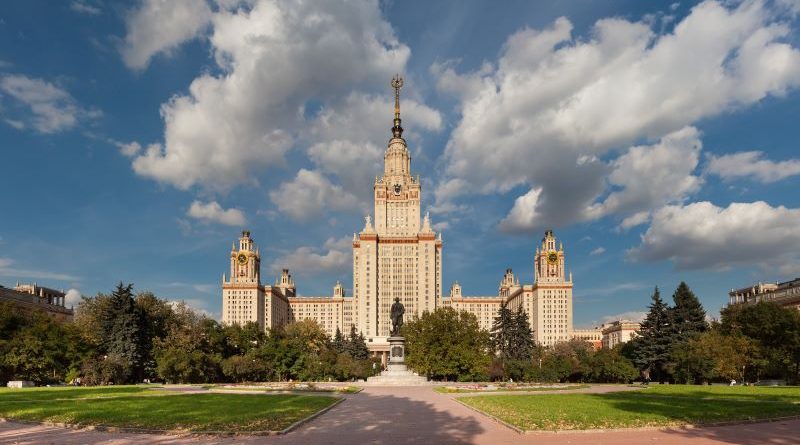Jade Rhoads Recaps Her Research Assistantship
By Jade Rhoads, MALD 2020 Candidate, The Fletcher School
My time as a research assistant with the Russia and Eurasia Program this summer is coming to an end. It has been a strange time indeed living through the COVID-19 pandemic and working through Zoom, but what better way is there to spend the quarantine than to dive deep into Russian politics? I have studied Russia for some time now, but it is so important to keep the beginner’s mind in any endeavor as there is always something new to learn.
For instance, I learned about the intricacies of Russian academia. One element that stood out to me was the accepted level of “teamwork” among Russian students—a behavior that we in the United States might call outright cheating. I had been aware of this tendency somewhat prior to working as a research assistant. I saw it play out in a Russian television series called Red Queen, where a couple of students were caught blatantly cheating during an exam. The reaction of the professor was a simple, “Girls, be quiet.” When it happened again, the reaction was a bit stricter, “Girls if you do not be quiet, you will have to leave the exam.” That is not the typical reaction compared to what one might see in a U.S. university.
I also learned about the evolution of international relations studies in Russia since World War II. Key takeaways I observed are that international relations and political science are distinct fields in Russian academia and rarely overlap. Although Soviet international relations theories were taught during the Cold War, American and French international relations literature has become more prominent in recent years as foreign influence has trickled into the Russian education system. The most intriguing observation I made was that Soviet scholars saw realism to be “bourgeois” and did not want to associate Soviet foreign policy with it; however, most Soviet government officials unknowingly used realist theory through their state-centric approach to gaining and wielding power in the world.
I also had the pleasure of meeting researcher Dina Smeltz when I sat in on a meeting to discuss a series of reports on public and elite opinion in Russia and the United States that are being produced between the Chicago Council on Global Affairs and The Fletcher School. It turns out we both worked in the Bureau of Intelligence and Research at the State Department, though not at the same time or for the same duration. Most of all, I was surprised to find out that she was the designer of a survey that was conducted in Iraq at the beginning of the war, which was striking because I learned about it from local women during a Lioness Team mission. As a young Marine on my first deployment, I was intrigued to learn in 2004 that U.S. civilians were interviewing Iraqi civilians. What synchronicity it was to meet the survey’s creator fourteen years later!
Having the opportunity to read Russian expert interviews on their views about the future trajectory of China was fascinating. There was a trend among the interviewees of a having a laissez-faire attitude about the development of China’s nuclear weapons program. Although many interviewees admitted that China is developing nuclear weapons so rapidly that it could catch up to the United States and Russia within the next 20 years, they were more concerned about the evolution of Chinese military power overall. I found this argument particularly interesting because it revolves around China’s military technology advancements generally rather than its growing nuclear arsenal specifically.
I am grateful for the opportunity I had to help with the work of the Russia and Eurasia Program over the last several months. Balancing serving as a research assistant, pursuing an obligatory State Department internship, and parenting a four-year-old came with plenty of challenges but was worth the effort. I appreciate the richness of the work being done by the program and was happy to lend a hand in furthering multiple projects. I was pleased to gain deeper knowledge of Russia this summer, which I will certainly take with me into my career as a Foreign Service Officer.

